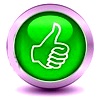A wiki is a web platform that enables multiple users to collaboratively create, edit, and arrange content through a browser.
Simplicity and openness are central to wikis: anyone can often add or change pages without technical knowledge, and edits are usually logged for review or rollback.
Key features
- **Collaborative editing:** Several contributors can edit pages, sometimes at the same time.
- **Edit history:** Every modification is recorded with a timestamp and the editor’s identity or IP address.
- **Interlinking:** It’s easy to create links between pages, forming an interconnected knowledge base.
- **Lightweight markup:** Pages are typically formatted with lightweight markup like WikiText or Markdown.
- **Permission settings:** Some wikis are open to anyone; others limit edits to registered users or specific groups.
- **Discussion pages:** Talk or discussion pages let contributors debate edits and organization.
Frequent uses
- Community-driven knowledge bases (for example, Wikipedia)
- Project documentation and internal company knowledge repositories
- Collaborative writing and shared note-taking
- School and instructional projects
Pros
- **Fast collaboration:** Many people can collaborate and iterate quickly on content.
- **Openness:** Edit histories and talk pages reveal how content decisions were made.
- **Expandable:** They scale organically as users add more pages and topics.
Drawbacks
- **Vandalism and false information:** Public editing can lead to vandalism or incorrect information.
- **Inconsistent quality:** Articles can differ greatly in depth, tone, and reliability.
- **Organizational issues:** Lack of structure or rules can lead to disorganization and conflicts.
Illustration
- **Wikipedia** — the largest example, maintained by the Wikimedia Foundation and contributed to by volunteers worldwide.






















